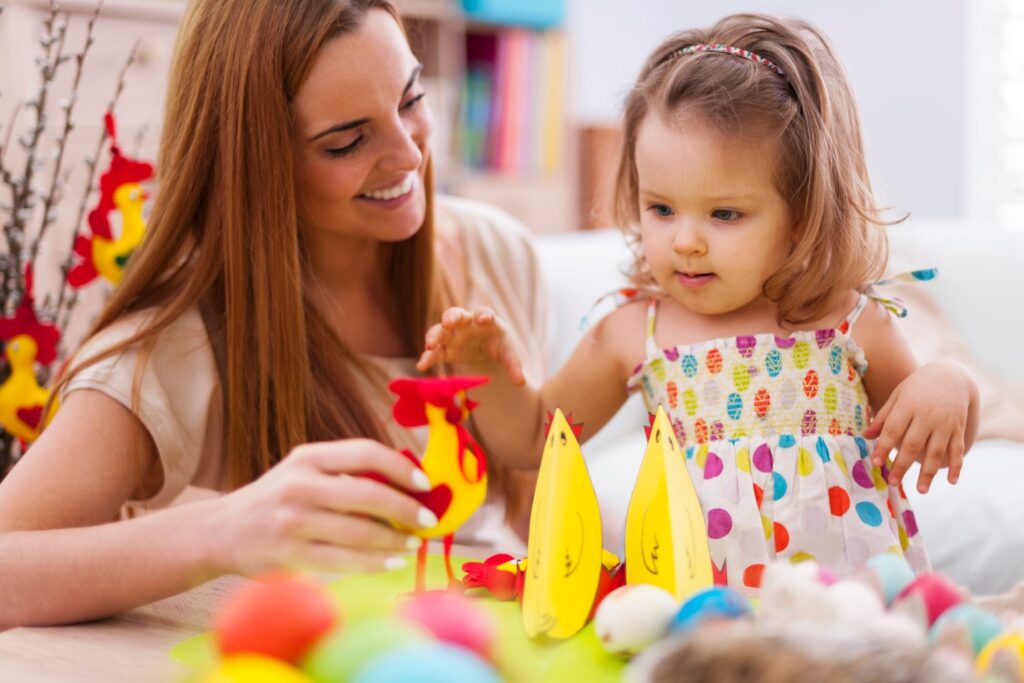When does learning begin for your child? If you’re thinking “once they start school,” think again. Long before stepping into a classroom, your child is already soaking up knowledge from their surroundings. The early childhood learning starts right from birth—and as a parent, you are their first and most influential teacher.
Understanding how children learn during these formative years helps you support their growth in meaningful ways. From watching your facial expressions to banging on pots and pans, every experience is a learning opportunity. Let’s explore how the early childhood learning unfolds from babyhood to preschool.
Learning Begins Before School

The biggest myth about learning is that it begins with formal education. In truth, the early childhood learning process begins the moment your baby opens their eyes to the world. Through touch, sound, sight, and even taste, babies begin making sense of their environment. As they grow, so do their learning styles—shaped by relationships, exploration, and communication.
As a parent, the environment you create at home plays a crucial role in supporting your child’s development. Praise, encouragement, safety, and emotional support all become the building blocks of early learning.
Creating a Safe Environment for Learning

A child learns best when they feel safe. In a secure and loving environment, a child is free to explore, experiment, and make mistakes without fear. This safety allows them to engage more deeply in the early childhood learning process. Whether it’s crawling across the floor or stacking blocks, your presence and encouragement make all the difference.
Let your child make mistakes—it’s how they learn to problem-solve. Praise their efforts, not just their achievements. This kind of positive reinforcement helps wire their brain for curiosity and resilience.
Who Teaches Your Child?
Everyone in your child’s life contributes to their learning journey. In infancy, it may be you, grandparents, caregivers, or siblings. As they grow, preschool teachers, playgroup coordinators, and peers take on the role of informal educators.
The early childhood learning process is not limited to structured lessons. A sibling showing them how to zip a jacket, or a neighbor playing peek-a-boo, are just as influential as any classroom experience.
How Do Young Children Learn?
The early childhood learning process follows a fascinating path. It starts with observation—babies watch and absorb everything around them. They begin to respond to voices, make sounds, and explore objects. This exploration often includes tasting, shaking, or banging items to understand cause and effect.
Next comes interactive play. First with parents, then on their own, and eventually with other children. Language blossoms as “Why?” and “What’s that?” become their favorite questions. Social environments introduce them to cooperation, sharing, and problem-solving.
Every child’s learning style is unique. Some are visual learners, while others are social butterflies. If you ever suspect delays or learning difficulties, early intervention through your pediatrician can make a huge difference.
The Role of Parents in the Early Childhood Learning Process

Parents play a pivotal role in shaping how and what a child learns. Here’s how you can nurture learning at every stage:
1. Build Strong Relationships
When your child feels loved and secure, they’re more open to learning. They develop trust and the confidence to explore the world.
2. Communicate Constantly
Talk, read, sing, and listen. These interactions build language skills—both verbal and non-verbal—and lay the foundation for literacy.
3. Enrich the Home Environment
Your child learns from what surrounds them at home—the people, the routines, the atmosphere. A positive, engaging home is central to the early childhood learning process.
4. Model Healthy Habits
Children learn by watching. Model reading, exercising, healthy eating, and limited screen time. These cues are absorbed effortlessly.
5. Involve Them in Everyday Activities
From counting stairs to helping in the kitchen, everyday moments become learning moments. These activities foster numeracy, literacy, logic, and motor skills—all essential in the early childhood learning process.
Encouraging Learning Through Play

When your child asks you to play, see it as an invitation to teach. Through play, they learn cooperation, creativity, and emotional regulation.
Let them fall sometimes. Teach them how to lose a game graciously. Singing together builds rhythm and listening skills. Playing music while they build blocks or color can enhance focus and sensory learning.
Minimize distractions like television when your child is engaged in solo play. Instead, be present—observe, encourage, and celebrate their efforts.
Final Thoughts: Learning Happens Every Day
The early childhood learning process is a beautiful journey that starts long before school and continues through every moment of discovery, mistake, and joy. As a parent, you’re not just a guide—you are your child’s world.
Whether it’s singing a lullaby, reading a bedtime story, or counting spoons at dinner, remember: your child is always learning. And with your support, they’ll develop a love for learning that lasts a lifetime.
Reference :
How your Child Learns: Baby to Pre-school Years
Also Read :
The Magic of Baby Facial Expression Recognition Unfolds
The Magic of Newborn Sensory Development : How Your Baby Begins to Know the World




Pingback: 15 Best Early Childhood Education Activities